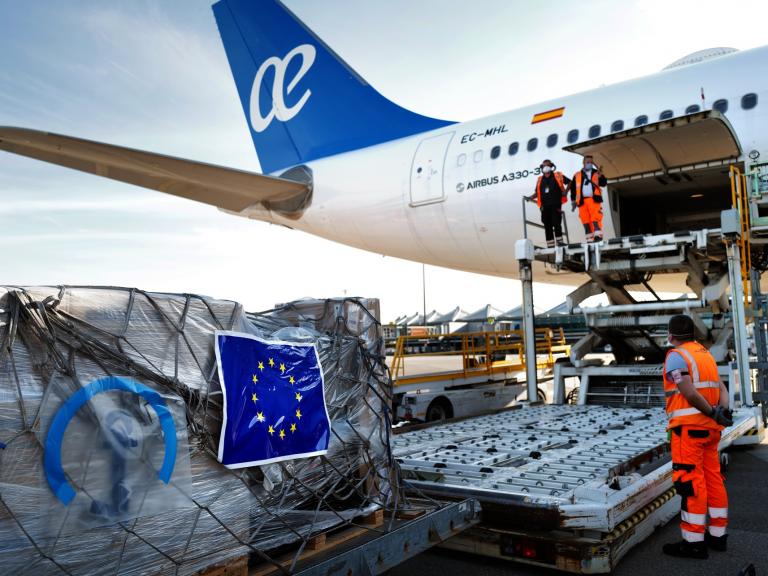-
Last updated on
© FAO
So far, the new coronavirus has caused fewer infections and fatalities in Africa than in Europe. Its impact however is still significant, particularly on the income and food security of the vulnerable. After all, African countries have also been taking measures to prevent the spread of the coronavirus, including the restriction of freedom of movement.
The regions of Mopti and Timbuktu in Mali are home to extremely vulnerable people, including farmers and migrant livestock farmers. Climate change is already hitting hard. This is reflected in all kinds of extreme weather, resulting in poor harvests since 2017. This has led to a serious shortage of feed for the cattle.
If that was not enough, armed groups have been ravaging the northern and central areas of the country, which has compromised agricultural yields significantly. Mopti and Timbuktu accommodates displaced persons who are competing with the locals over their food supply.
The coronary measures make things extra tricky. They hamper seasonal migration, the availability of labour, and access to grazing areas for livestock farmers and all kinds of resources for farmers. Moreover, public authorities and non-governmental actors are not in a position to provide the usual support.
Agricultural kits and training
To alleviate the suffering, Belgium has donated 250,000 dollars to SFERA, an emergency fund of the UN Organization for Food and Agriculture (FAO). The money will support 1,270 vulnerable households, which consist of about 7,600 people. Indirectly, almost 600,000 people will be reached.
The selected families will receive kits with all kinds of agricultural tools and resources, such as vegetable seeds. This will allow them to diversify and increase their vegetable production. Training on good agricultural and nutritional practices is also provided. Livestock farmers receive livestock breeding kits and can also follow training courses. In this way, they can still start their agricultural activities and earn a living.
The project aims to assist both displaced persons and local residents. Both groups will be sensitized on the importance of peaceful coexistence. When selecting beneficiaries, female-headed households are given priority.
More on Corona crisis

How our post in Rabat faced a crisis of unprecedented proportions
At the end of March, the world froze. States decided, among other measures, to close their borders to prevent the uncontrolled s...

Yoga and meditation in quarantine
In early March, Maryline Delvallée headed for India to attend a course with her Albanian boyfriend Vigjilent Rrapaj. A few days ...

Team Europe: EU brings its full weight to bear on corona
With Team Europe, the European Union aims to combine all its external actions to help partners overcome the coronavirus crisis.
